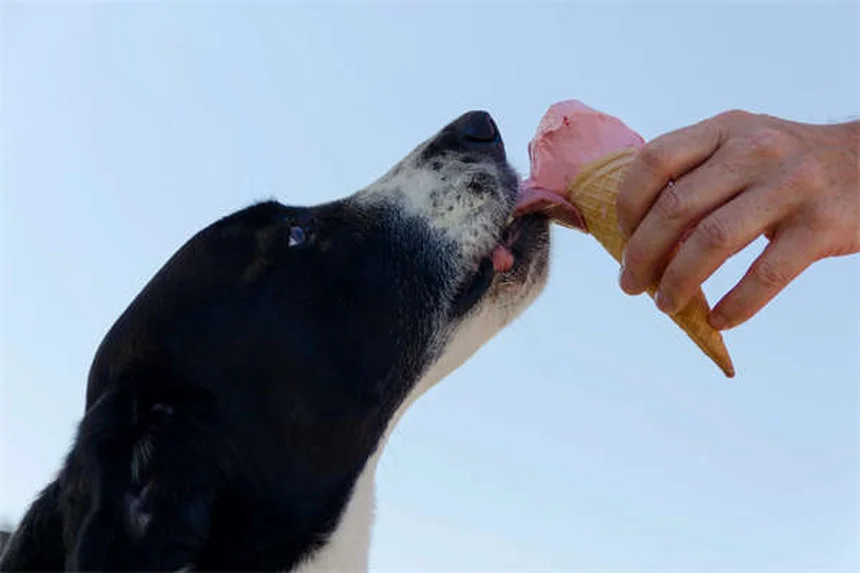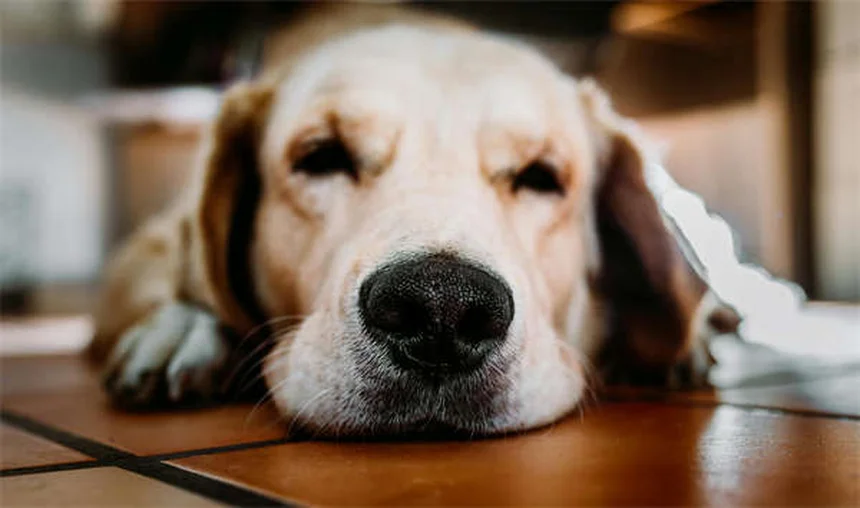Urinary tract obstruction in rabbits - is it serious? The answer is: Yes, it can be life-threatening! If your bunny's having trouble peeing, you're dealing with a real emergency that needs immediate vet attention. We've seen too many cases where rabbit owners wait too long, only to face heartbreaking consequences.Here's the deal: rabbits are masters at hiding pain, but urinary blockages often show through specific behaviors like painful hunched postures or producing weird-colored urine. The good news? With quick action and proper care, most bunnies bounce back beautifully. In this guide, we'll walk you through exactly what to watch for and how to help your furry friend before it's too late.
E.g. :Grandparenting with Pets: The Unexpected Joys and Challenges
- 1、Urinary Tract Obstruction in Rabbits: What You Need to Know
- 2、Getting to the Bottom of Bunny Bladder Issues
- 3、Keeping Your Rabbit's Plumbing in Top Shape
- 4、Beyond the Basics: Rabbit Urinary Health Deep Dive
- 5、Advanced Prevention Strategies
- 6、When Prevention Isn't Enough
- 7、FAQs
Urinary Tract Obstruction in Rabbits: What You Need to Know
Spotting the Signs: Is Your Bunny in Trouble?
Let me tell you, when your fluffy friend starts having pee problems, it's no joke. Urinary tract obstructions can turn your happy hopper into a miserable moper real quick. But here's the thing - some rabbits are tough little cookies and won't show obvious signs. Most will though, and you'll want to keep your eyes peeled for these red flags:
Does your rabbit look like they're doing yoga moves when trying to pee? That hunched-over posture isn't them trying a new exercise routine - it's pain. Other signs include:
- Going to the bathroom way more often than usual
- Producing weird-looking urine (think cloudy or the color of weak tea)
- Moving like they've got lead in their paws
- Grinding their teeth (rabbit code for "I'm hurting")
Now here's a fun fact that's not so fun: rabbits with this issue often have kidneys that are working overtime. Unless you're a rabbit anatomy whiz (and let's be honest, most of us aren't), you'll want your vet to check this out.
Why Does This Happen to Our Fluffy Friends?
Imagine tiny roadblocks in your bunny's plumbing system - that's essentially what's going on. These blockages can come from:
| Culprit | How It Causes Trouble |
|---|---|
| Too much calcium | Forms gritty sludge that clogs things up |
| Injuries | Swelling blocks the urine highways |
| Overgrown tissue | Rare but can squeeze the pipes shut |
The calcium connection is particularly interesting. Rabbits process calcium differently than we do, and when they get too much, it's like dumping sand in their engine. This "calcium sand" can create tiny but mighty blockages that make peeing a painful puzzle.
Getting to the Bottom of Bunny Bladder Issues
 Photos provided by pixabay
Photos provided by pixabay
How Vets Play Detective
When you bring your rabbit in, the vet's going to look for some telltale clues. They'll watch how your bunny positions itself to pee (or tries to). Unproductive squatting is a big hint something's wrong down there.
The vet might run some tests too:
- Urine analysis (checking for those pesky calcium crystals)
- Catheter examination (to find blockages)
- Physical palpation (feeling for enlarged kidneys)
Here's something that might surprise you: not every test will show crystals, even when they're causing problems. That's why vets often use multiple approaches to solve the mystery.
Emergency Mode: When Every Minute Counts
Complete blockage? That's a five-alarm fire in bunny world. Your rabbit's system can crash fast when toxins build up. Partial blockages need quick attention too - think of it like a kinked hose that's barely letting water through.
Treatment usually involves:
- Getting the pipes flowing again (might need surgery)
- Rebalancing fluids (like refilling a dried-up water balloon)
- Addressing the root cause (so history doesn't repeat itself)
Did you know recovery often requires a hospital stay? It's like bunny rehab until they can pee properly on their own. The good news? Many rabbits bounce back beautifully with proper care.
Keeping Your Rabbit's Plumbing in Top Shape
Diet Do's and Don'ts
You are what you eat, and that goes double for rabbits! Here's how to keep their system running smoothly:
Why feed alfalfa to a grown rabbit? That's like giving candy to a baby - too much of a good thing. Adult rabbits typically don't need alfalfa's high calcium content. Switch to timothy hay-based pellets instead.
Other dietary tips:
- Load up on fiber (think hay, hay, and more hay)
- Keep water flowing (try a bowl and bottle for options)
- Limit high-calcium veggies (bye-bye spinach, hello romaine)
 Photos provided by pixabay
Photos provided by pixabay
How Vets Play Detective
Couch potato bunnies are cute, but not healthy. Exercise helps everything move through their system, including that tricky calcium. Try these fun ideas:
- Create a bunny obstacle course (cardboard boxes work great)
- Hide treats around their space (makes them hop and hunt)
- Rotate toys weekly (novelty = movement)
Remember, prevention is way easier than treatment. A few simple changes can keep your rabbit's urinary tract happy and healthy for years to come!
Now go give your bunny some extra pets (and maybe check their water bottle while you're at it).
Beyond the Basics: Rabbit Urinary Health Deep Dive
The Calcium Conundrum: More Than Just Diet
You might think calcium issues only come from food, but there's more to the story. Water quality plays a bigger role than most bunny parents realize. Hard water areas often have high mineral content that can contribute to urinary problems. Ever notice white crust around your rabbit's water bowl? That's mineral buildup that could be affecting your pet too.
Here's a simple test you can do at home - fill a clear glass with your tap water and let it sit overnight. If you see sediment at the bottom, your water might be part of the problem. Consider using filtered water for your rabbit's drinking needs.
Stress: The Silent Urinary Tract Saboteur
Believe it or not, your rabbit's emotional state directly impacts their plumbing system. Have you ever noticed your bunny having accidents after a loud noise or sudden change? That's because stress hormones can actually alter bladder function. Common stressors include:
- New pets in the household (even if they don't interact directly)
- Construction noise or frequent loud sounds
- Changes in routine or living space
- Lack of hiding spots in their environment
Creating a peaceful bunny haven with plenty of hiding places and predictable routines can work wonders for urinary health. Try placing cardboard boxes with two exits in their space - rabbits feel safer when they have escape routes.
Advanced Prevention Strategies
 Photos provided by pixabay
Photos provided by pixabay
How Vets Play Detective
Some rabbits turn their noses up at water bottles, and dehydration is a major risk factor for urinary issues. Here are some creative ways to increase fluid intake:
Try offering water in different containers - ceramic bowls, wide-mouth jars, or even pet fountains. Many rabbits prefer drinking from bowls they can dip their whole face into. You can also add flavor to their water by:
- Steeping a small piece of apple in their water (remove after a few hours)
- Adding a sprig of fresh mint or cilantro
- Using a tiny amount of unsweetened cranberry juice (just a few drops per cup)
Monitor intake by marking water levels at the same time each day. A healthy rabbit should drink about 50-150ml per kg of body weight daily.
The Power of Herbal Support
Certain herbs can gently support urinary tract health when used appropriately. Always check with your vet first, but these are generally safe options:
| Herb | Benefits | How to Offer |
|---|---|---|
| Dandelion leaf | Natural diuretic | Fresh or dried, 1-2 leaves daily |
| Parsley | Supports kidney function | Small sprigs 2-3 times weekly |
| Chamomile | Reduces inflammation | Weak tea in water bowl |
Remember, these are supplements, not treatments. If your rabbit shows any signs of illness, skip the home remedies and head straight to the vet.
When Prevention Isn't Enough
Recognizing Emergency Situations
Some urinary issues require immediate veterinary attention. If your rabbit stops eating entirely, that's always an emergency - but with urinary blockages, these additional signs mean you need to act fast:
- Lethargy that's more than just a lazy day
- Cold ears (indicates circulatory collapse)
- Loud tooth grinding (different from quiet "purring" grinding)
- Straining with no urine production for over 12 hours
Keep your vet's emergency number handy and know the route to the nearest 24-hour exotic pet clinic. Time is critical when dealing with complete blockages.
Long-Term Management for Recurrent Issues
Some rabbits are prone to urinary problems despite excellent care. For these special cases, you might need to:
- Implement more frequent vet check-ups (every 3-6 months)
- Use prescription diets formulated for urinary health
- Learn to palpate the bladder at home (your vet can teach you)
- Consider periodic x-rays to monitor crystal formation
With proper management, even rabbits with chronic urinary issues can live full, happy lives. The key is catching changes early and working closely with your vet.
Now that you're armed with this knowledge, you're well on your way to becoming a urinary health expert for your fluffy friend. Remember, every rabbit is unique - what works for one might not work for another. Stay observant, be proactive, and don't hesitate to seek professional advice when needed. Your bunny's health is worth it!
E.g. :Rabbit UTI (Urinary Tract Infection) | PetMD
FAQs
Q: How can I tell if my rabbit has a urinary tract obstruction?
A: Look for these 5 red flags: 1) Your bunny's straining like they're doing yoga moves when trying to pee, 2) Their urine looks cloudy or brownish (normal rabbit pee is clear to yellow), 3) They're visiting the litter box way more often but producing little urine, 4) They're grinding their teeth (rabbit code for "I'm in pain"), and 5) They're moving like they've got lead feet. If you spot even one of these signs, call your vet immediately - urinary blockages can turn deadly within hours.
Q: What causes these dangerous blockages in rabbits?
A: The main culprit is usually calcium buildup - rabbits process calcium differently than we do, and too much creates gritty "sand" that clogs their plumbing. Other causes include bladder infections, injuries, or (rarely) tumors. Diet plays a huge role - we often see problems in rabbits fed alfalfa hay (too high in calcium for adults) or not drinking enough water. That's why we always recommend timothy hay for adult bunnies and multiple water sources.
Q: How do vets diagnose urinary obstructions in rabbits?
A: Your vet will become a bunny detective, using three key tools: 1) Physical exam (feeling for enlarged kidneys), 2) Urine tests (checking for crystals), and 3) Imaging like X-rays or ultrasound. Here's something most owners don't know - sometimes the tests come back normal even when there's a blockage, which is why we rely heavily on observing your rabbit's behavior. That's why your detailed observations are so valuable!
Q: What's the treatment for a blocked rabbit urinary tract?
A: Treatment depends on severity but typically includes: 1) Emergency fluid therapy (like rehydrating a dried-up sponge), 2) Pain medication (these blockages hurt!), 3) Catheterization or surgery to remove the blockage, and 4) Hospitalization until normal urination returns. The golden rule? The sooner treatment starts, the better the outcome. We've had bunnies recover fully when treated early, while delays can lead to permanent kidney damage.
Q: How can I prevent urinary tract problems in my rabbit?
A: Our top 3 prevention tips: 1) Ditch alfalfa hay (switch to timothy or orchard grass), 2) Encourage water intake (try a bowl and bottle combo), and 3) Keep your bunny moving - exercise helps flush their system. Bonus tip: Limit high-calcium veggies like spinach and parsley. Remember, prevention is way easier (and cheaper) than emergency vet visits!











